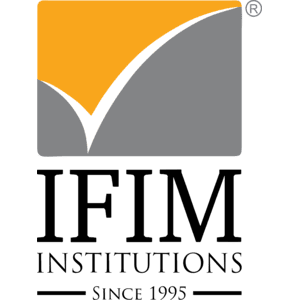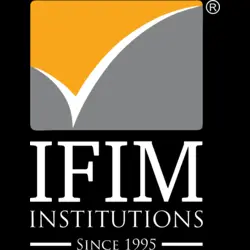The Importance of Interviewing Skills
Interviewing skills play a vital role in career success. Being prepared with the necessary skills helps to secure the desired job to excel in the desired sector. This article elucidates the skills and their requirements to make a strong impression on potential employers. Mastering the following skills makes you communicate effectively your qualifications, experiences, skills, expertise, and interests that demonstrate your fit for the job.
Top Job Interview Skills
1. Active Listening
- Active listening is crucial in interviews as it ensures to understand the questions to understand with clarity.
- Active listening can tell your responses properly by addressing the interviewee’s concerns and demonstrating their ability. It enhances to engage thoughtfully in conversations.
- Active listening addresses respect and avoids miscommunication.
- Allows one to pick up on nuances, making answers relevant, impactful, and interesting. Active listening creates a positive dialogue which turns out to be more natural and confident.
2. Confidence
- Confidence is a key quality to wear up on the sleeve It shows the interviewer that you can handle the jobs, challenges, threats, and obstacles.
- Confidence enhances your credibility and leaves a greater impact Presenting yourself as competent.
- Confidence helps you articulate your thoughts and creates great verbal communication.
- It positively influences the interviewer’s perception of your competency for the role.
3. Flexibility
- Flexibility is the key to demonstrating the ability to adapt and tackle unexpected situations or unforeseeable events.
- One can show that he or she can adjust to scenarios and remain composed in dynamic work environments.
- Flexibility is a key factor for employees who often test the interviewees or the employees on how they handle the curveballs in any scenario.
- Flexibility offers commendable problem-solving skills and composure under pressure.
4. Organization
- Organization is crucial to showcase your ability to think clearly and structure your responses.
- This reflects your ability to manage tasks and information effectively.
- Organization is a highly valued characteristic in professional settings when there is a workload of tasks.
- Being organized helps you stay focused during an interview and highlight all the key points without rambling or faltering.
5. Leadership
- Even if the role isn’t a leadership position, showcase your leadership capabilities which indicates that you have the potential for growth within the company.
- Showcase your skills during an interview by demonstrating the qualities you possess that the employees value.
Highlight your ability to handle responsibilities, which leads the team to success, by explaining some scenarios or giving some examples.
Job Interview Tips to Crack Your Dream Job
1. Research the Company
- Firstly, understand the company’s value culture and its requirements.
- Research regarding the company to tailor your response which aligns with the company’s objective or mission.
- Thorough research into the company shall make you ask insightful questions with a more proactive approach and engagement.
- Research helps to connect skills and experience with the company’s goals, enhancing your chances to seize the opportunity successfully.
2. Dress Appropriately
Reflect on your professionalism and showcase your respect for the company’s norms by dressing properly for the interview.
- Make sure your dress aligns with the company’s dress code, be it formal or casual.
- Simple and proper dressing according to the company can boost your confidence to make a fit and positive impression.
- Apply to dress, eliminate any distractions, and allow the interviewer to focus on your qualifications.
3. Prepare for Common Interview Questions
- Anticipate, prepare, and practice answers to common questions.
- This preparation helps you respond confidently and give a concise, precise, and clarified answer.
- This prepares you to craft answers that highlight the key points, achievements, and interests within the job’s requirements.
- It is known to reduce anxiety, providing confidence to not be caught off guard by typical questions.
- Well-prepared answers shall be more confident, organized, and ready for a situation.
4. Follow Up After the Interview
- As a professional gesture, send a follow-up thank you note to reinforce your interest in the position or job.
- Key points can be reiterated when a thoughtful follow-up is presented during the interview.
- Reinforces your qualifications and enthusiasm for the role.
- It is an expression of admiration or appreciation for the interviewer’s time, which is a sign of professionalism.
Ideas to Develop Your Interview Skills
Practice and Consistency
- Practice the interview scenarios regularly to build confidence and hone your ability to respond effectively.
- Similarly, interview yourself in front of the mirror, and friends, or family to become confident regarding the common questions and improve your delivery.
- Practice consistently to refine your answers, and manage anxiety and nervousness to develop a natural, fluid speaking style.
- Receive feedback and make necessary adjustments in the areas of improvement to present yourself clearly and confidently during the actual interview.
Think in an Interviewer’s Point of View
- Consider the qualities and skills an interviewer may possess.
- Respond to such questions from the interviewer’s perspective to help configure the answers to what they are seeking.
- Understand the interviewer’s objective, the company’s interest, and the job descriptions to align the answers perfectly to such expectations.
- This approach helps you anticipate the interviewer’s concern and focus on relevant discussion.
Prepare Solid Examples
- Showcase skills and achievements in interests by presenting solid examples.
- Make your responses more compelling using concrete and real scenario examples.
- Structure your examples and make them fit within the answers.
- Solid examples with clear qualifications help you cement your knowledgeable demeanor in the minds of the interviewer.
Plan What You Want to Ask Your Interviewer
- Showcase your genuine interest in the job or company by preparing thoughtful questions for the interviewer.
- Ask insightful questions to showcase your research about the company.
- Such planning provides an opportunity to assess the company and position and whether they align with your career goals.
- Appealing thoughtful questions before the interviewer helps you stand out as a proactive and informed candidate.
- Such planning helps to foster a deeper level of communication and enhances the overall interview experience.
Conclusion
Follow the above skills to enhance your abilities to articulate your responses and present your body language well in the interview sessions. By consistently practicing them, you can be well aware and stay alert to respond precisely with no faltering for situational questionnaires and placed in your desired role. All the best!
FAQs
Why are interview skills critical for career advancement?
Strong interview skills help to secure desired positions in the organization, communicate your value effectively, and set you apart from other candidates, leading to career growth and opportunities.
What are the top skills needed to excel in a job interview?
Clear communication, confidence, understanding the role, showcasing relevant experience articulately, active listening, problem-solving, critical thinking, adaptability, collaborative spirit, and cultural fit are the top skills for excelling in an interview.
How can I prepare effectively for common interview questions?
Research the company first, review the job description, practice answers for the common questions, assess your strengths and weaknesses, and prepare examples from your experiences to match with the company’s interests.
What are some strategies to improve my interview performance?
Practice mock interviews. Stay calm and focused. Seek constructive criticism and feedback. Maintain good body posture and body language. Ask insightful questions by researching the company and tell your responses to highlight that your skills do fit the job role.
How should I follow up after an interview to make a positive impression?
Send a concise, polite thank you email within 24 hours. Express gratitude and admire and appreciate the interviewer’s effort. Briefly restate your qualifications that align with the position to leave a lasting and positive impression.


